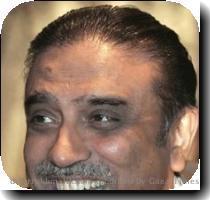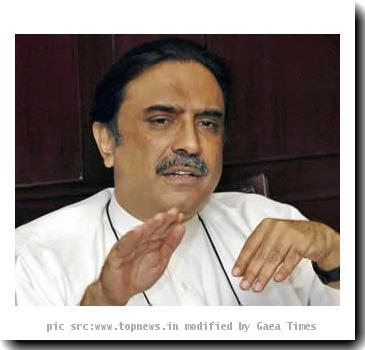Pakistan’s National Assembly passes constitutional amendment to strip presidential powers
By APThursday, April 8, 2010
Pakistan lawmakers vote to curb president powers
ISLAMABAD — Pakistan’s lower house of parliament unanimously approved a constitutional amendment Thursday that strips the president of powers inherited from the country’s former military ruler, a key step in implementing a long-standing opposition demand that could reduce pressure on the U.S.-allied leader.
The bill has cross-party support and its passage could help calm political tensions as Pakistan grapples with a violent Taliban-led insurgency. It transfers a variety of powers, including the ability to fire an elected government and appoint military chiefs and judges, from the office of the president to the prime minister.
“We have empowered the masses today,” said Prime Minister Yusuf Raza Gilani in his address to the National Assembly after the televised vote. “The impossible you made possible has established the sovereignty of parliament.”
The bill must now be passed by a two-thirds majority of the Senate, or upper house of parliament, and be signed by President Asif Ali Zardari to be implemented. Approval by both is expected since the amendment was drafted by a committee that included representatives from all parties in parliament.
The opposition had criticized Zardari for dragging his feet on relinquishing the powers, which he first promised to do when he was elected in 2008 as the successor to Gen. Pervez Musharraf.
“It is a historic day for us,” said National Assembly speaker Fehmida Mirza. “It is a celebration for all democratic parties.”
Lawmakers thumped their desks as the house approved the bill and shouted “Hang Musharraf!” in reference to the former military leader. The vote was 292-0, with 50 lawmakers absent.
“Today, in a true sense, we are giving you a parliamentary form of government,” said Gilani.
The changes mean Zardari will occupy a largely ceremonial post, but since he derives much of his power from his position as co-head of the largest party, he will still wield significant influence over the government. Furthermore, Gilani is a loyal member of Zardari’s party and a strong supporter of the president.
The leader of the opposition, Nawaz Sharif, has been one of the most vocal figures calling for Zardari to relinquish the powers he inherited from Musharraf. The president’s acquiescence could improve relations between the two and ease up a political system often gridlocked by power struggles between the two main parties.
“We all are united for sovereignty,” said the leader of Sharif’s party in the National Assembly, Chaudhry Nisar Ali Khan. “Let us promise that no one will give support to a dictator in the future.”
Analysts say Sharif also pushed to include in the amendment the removal of a ban on prime ministers serving for more than two terms. He served twice as premier in the 1990s and is eager to take up the job for a third time if his party can win the next set of national elections scheduled for 2013.
The amendment also sets up a new commission to choose Supreme Court judges, a decision previously carried out by the president in consultation with the chief justice. The new body would be chaired by the chief justice, and would include a mix of senior judges and government officials.
It also changes the name of Pakistan’s North West Frontier Province to Khyber-Pakhtoonkhwa. Renaming the province was included in the package by the ruling party to get support from the Awami National Party, a Pashtun nationalist party that leads the provincial government in the northwest.
Tags: As-pakistan, Asia, Asif Ali Zardari, Constitutional Amendments, Islamabad, Nawaz Sharif, Pakistan, South Asia



